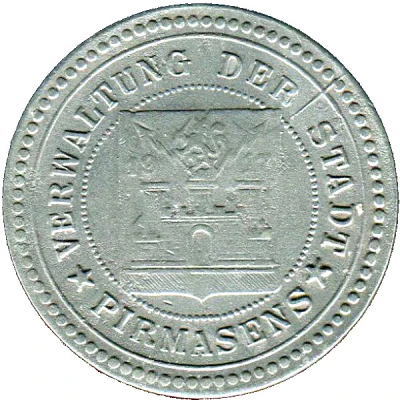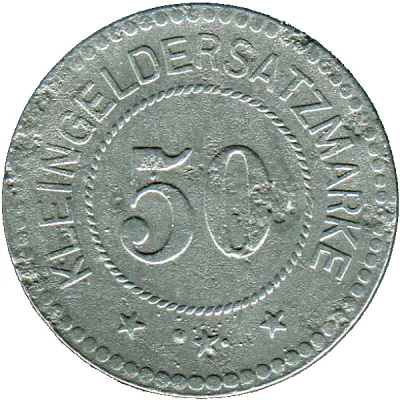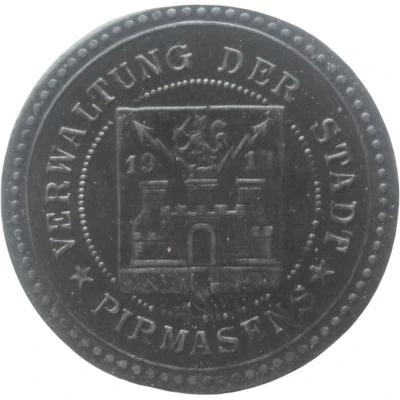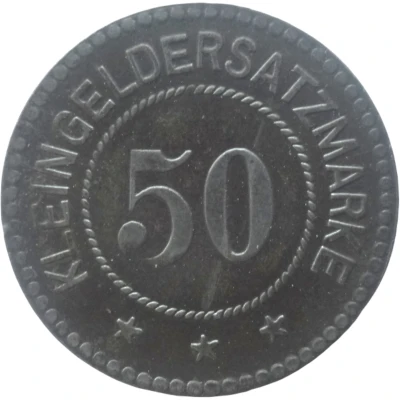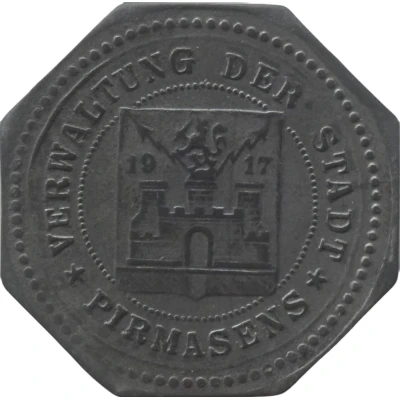
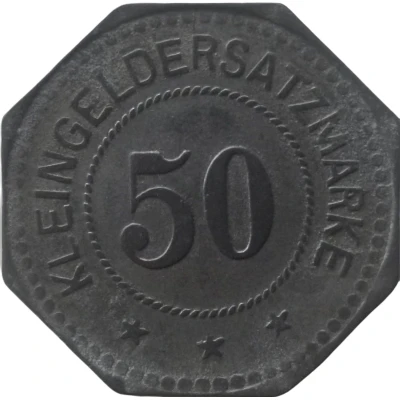

© Willem63 (CC BY-NC-SA)
50 Pfennigs - Pirmasens
1917 year| Zinc | 3.2 g | 24.5 mm |
| Issuer | City of Pirmasens (Federal state of Bavaria) |
|---|---|
| Emperor | William II (Wilhelm II) (1888-1918) |
| Type | Standard circulation coin |
| Year | 1917 |
| Value | 50 Pfennigs (50 Pfennige) (0.50) |
| Currency | Mark (1914-1924) |
| Composition | Zinc |
| Weight | 3.2 g |
| Diameter | 24.5 mm |
| Thickness | 1.5 mm |
| Shape | Octagonal (8-sided) |
| Technique | Milled |
| Orientation | Medal alignment ↑↑ |
| Demonetized | Yes |
| Updated | 2024-10-04 |
| Numista | N#63374 |
|---|---|
| Rarity index | 78% |
Reverse
Pearl rim, legend surrounding rope circle with denomination centered
Script: Latin
Lettering:
KLEINGELDERSATZMARKE
50
★ ★ ★
Translation: SMALL CASH REPLACEMENT MARK
Edge
Plain
Interesting fact
One interesting fact about the 50 Pfennigs - Pirmasens 1917 coin is that it was issued during a time of economic turmoil in Germany, known as the "Inflationary Period" (1914-1923). During this time, the value of the German mark (the national currency) dropped significantly, leading to a period of hyperinflation. As a result, many coins like the 50 Pfennigs - Pirmasens 1917 were minted with a low denomination but made of a cheaper metal like zinc, rather than a more valuable metal like gold or silver, to help control inflation. Despite this, the coin still holds historical significance and is a valuable collector's item today.
